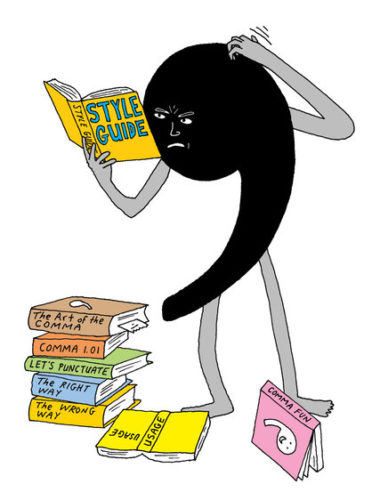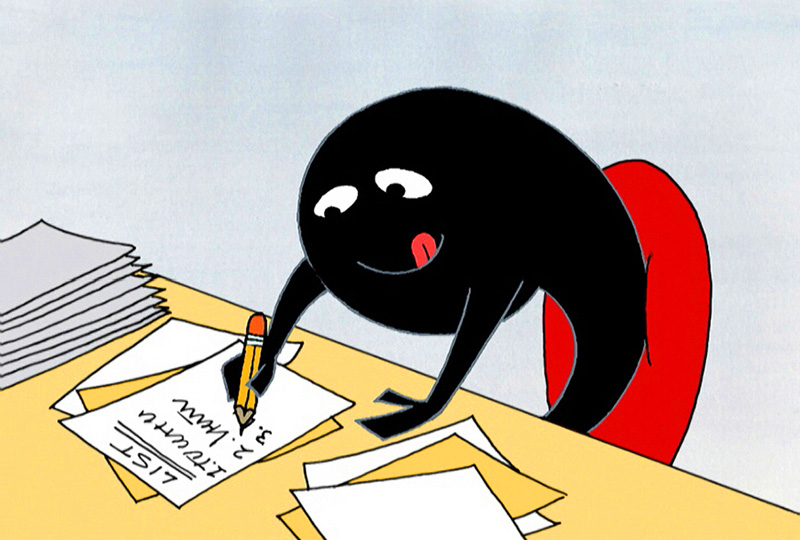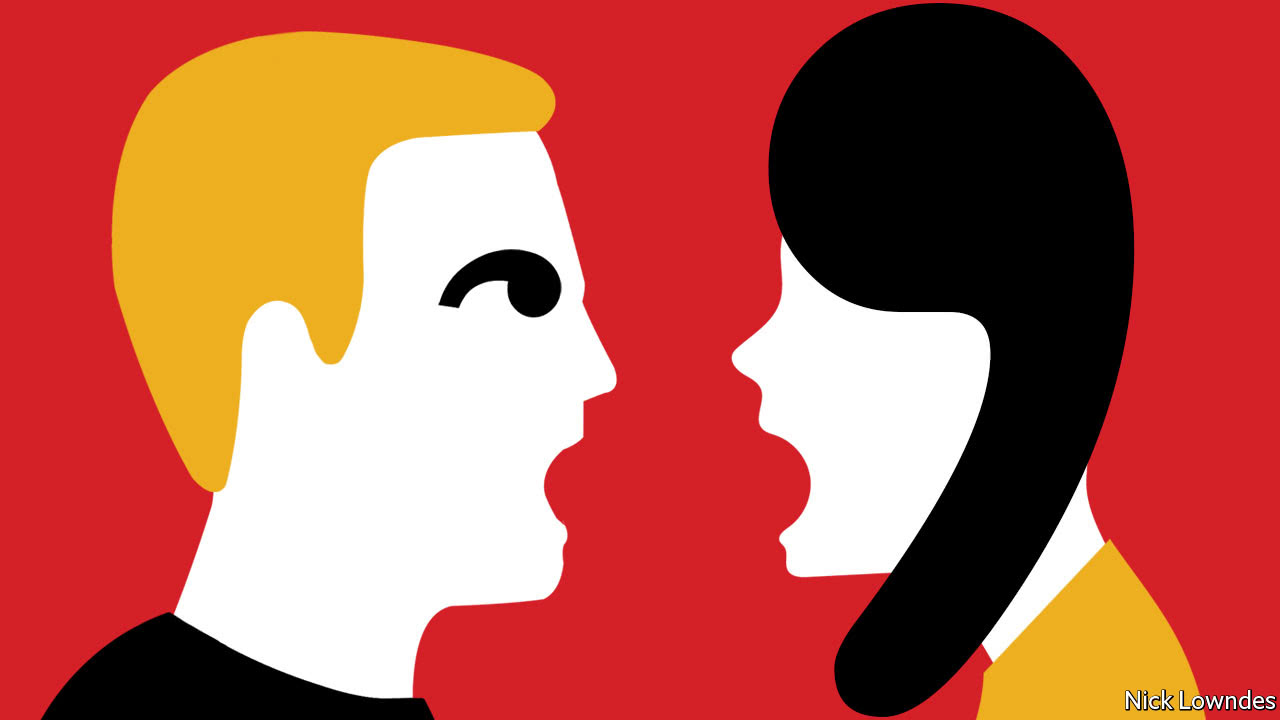

I was taking a mid-afternoon break at my favorite coffee shop. The brew was dark, organic, and fair trade; the scone, buttery and soft with little treasures of cranberries buried beneath the surface; and the people-watching, exquisite. Take the guy with the cryptic tattoo on the back of his neck. I was trying to crack the code when, just a couple of tables away, a young woman exclaimed to her coffee partner, “And I was like, comma, you just don’t get it!”
What exactly was not gotten I will never know, for she dropped her voice into a whisper. But I was amazed by her grammar—the vocalized comma! The young women went out into the sunshine, eventually followed by the indecipherable neck tattoo, but I continued to sit and stir in wonder.
~
Typically, I don’t give much thought to commas. In my writing, I employ what I think of as the intuitive comma. If a particular sentence seems to be running on for a bit too long across the page, then I will throw a little inky guy in there. English teachers are, no doubt, cringing at my admission. A misplaced comma can do damage, for instance, as in the panda eats, shoots & leaves. I realize formal rules do exist but, like the prohibition against ending a sentence with a preposition, some mistakes I have learned to live with. And the intuitive comma serves me pretty well. It’s not like I’m throwing commas around all, willy, nilly.
Besides, commas are controversial in the grammar world. Take the serial comma. Do you separate each item in a series of three or not? In the coffee shop, did the panda take her tea with milk, sugar, and biscuits? Or, with milk, sugar and biscuits? Tea time reminds me that the serial comma is alternatively known as the Oxford comma, which sounds rather pretentious to my ear. I picture the Oxford comma wearing a bow tie. (Wow, I can be rather judgmental about other people’s necks!)
 For the record, I have never, ever worn a bow tie. But I have thought of myself as akin to British royalty. After working hard for three and a half years in college, I was coasting my final semester. Dude, I was chilling. Just taking it easy, man. But I had to take the required credit in a foreign language in order to graduate, which was how I found myself seated next to this freshman with cute dimples in Spanish class. She asked if I would stay after class and take a look at her freshman American lit paper. De nada. I had let it be known that I was a published author of searing, politically-charged material—a paragraph printed in the Letters to the Editor section of the local newspaper about my belief that the President spent too much time horsing around at his ranch. Of course, this idea was not original to me. But, still, that was my name in ink, which made me a man of letters.
For the record, I have never, ever worn a bow tie. But I have thought of myself as akin to British royalty. After working hard for three and a half years in college, I was coasting my final semester. Dude, I was chilling. Just taking it easy, man. But I had to take the required credit in a foreign language in order to graduate, which was how I found myself seated next to this freshman with cute dimples in Spanish class. She asked if I would stay after class and take a look at her freshman American lit paper. De nada. I had let it be known that I was a published author of searing, politically-charged material—a paragraph printed in the Letters to the Editor section of the local newspaper about my belief that the President spent too much time horsing around at his ranch. Of course, this idea was not original to me. But, still, that was my name in ink, which made me a man of letters.
I remember taking a black felt-tipped pen and raining commas upon that freshman’s paper. I flooded her prose with little inky guys.
Years later, I happened to meet the same woman at the wedding of a mutual friend and, suddenly, all that anxiety I’d thought I’d processed came rushing and roaring back to me. How ironic that I had used all those commas! I was stalling, inserting all those pauses as if there was meaning behind what I was doing when, in actuality, I knew full well that I was posturing, for I was terribly scared of graduating into the unknown.
~
Recently, my wife and I attended a family wedding. There we saw a particular nephew who is four years old and attends a Christian preschool. He used to be so quiet! Now, he asks questions like, how come God created mosquitoes? Mosquitoes make you itch, he explained. Itching is bad. God is good. So, why did God create them? He looks at me, unblinking.
“Well,” I began, “it’s like,” then my five-year-old son rushed up with toy tractors and the boys were off. I was saved by the comma.

Does God speak in commas? Reading the opening chapter of Genesis, God speaks the world into existence and all that is within it, presumably mosquitoes as well. But God commands! Grammatically speaking, this is known as the imperative mood. How telling that verbs have moods! In terms of the Divine, perhaps there is no time for commas when You are timeless, no hint of hesitation when You are omniscient.
But, God did create the Sabbath. Like a well-placed comma, there is an intentional pause written into the narrative of Creation.
The original Greek of the New Testament contained no punctuation of any kind, which must have prompted many questions. In English translations, some of my favorite verses, which speak about God, make excellent use of the comma: Who will separate us from the love of Christ? Will hardship, or distress, or persecution, or famine, or nakedness, or peril, or sword?
Each time one of these disasters is mentioned, the comma heightens the tension. A comma is shaped like a cresting wave, and then we get the conclusion like the crashing surf: No, in all these things we are more than conquerors through him who loved us. Amen, amen! Despite all our rising insecurities, we don’t have to be anxious, being secure in love like an ocean in our souls.
Wedding vows also make excellent use of the comma, as in to have and to hold, from this day forward, for better, for worse, for richer, for poorer, in sickness and in health, …These commas are unvocalized, not spoken. They are silent pauses, and this is my favorite part of attending a wedding because, in the comma moments, I remember my own bride, standing before me, her hands in mine, and how there was a light in her face as she repeated our vows.
I also remember a particular ceremony when, as part of their vows, the couple recited the Thirteenth Chapter of First Corinthians. In unison. From memory. This was entirely the bride’s idea and I had tried to talk her out of it. Seemed like a lot of pressure to put on yourself. Wouldn’t it be better for me just to read it? She was adamant. The groom and I relented.
When it came time for the First Corinthians moment, the bride and groom turned to face one another, held hands, then locked eyes. She nodded, and they began the recitation in lockstep, enunciating each word as a single trail of footprints. Soon enough, the groom stumbled and fell behind a half a pace. I still can hear how she gently paused between the words, offering him grace.
“Love is, patient. Love is, kind.”

During this most recent wedding, however, I did not get to rest in the pauses. Due to the thunderstorm, the ceremony was moved indoors, specifically to a barn. I had not realized that a barn could function as a greenhouse until, a few minutes into the processional, the sweat beads were processing down my back faster than the bridesmaids down the aisle. And, not only that, but our youngest son had discovered the dirt on the floor and was mucking around, pretending to be a bulldozer in his good, church clothes. My wife whispered, fiercely: Take him out of here! No commas in her imperative mood, and I did not waste time.
Outside the barn, there was fresh air and the faint whine of mosquitoes. Eventually, I heard the cheers. “That’s for the kiss,” I told my son. “Now, they’re married!” And he looked up at me, grinning widely. Soon enough, he went back to making piles out of the gravel in the parking lot. He was a hot mess, but that look on his cherub face changed my mood for the better!
Finally, I had the chance to shake the pastor’s hand during the reception. Just before I had left the ceremony, I did catch the beginning of his homily, and I especially appreciated the story from the bride’s youth, how she had skipped down the carpeted aisle of her home church to answer the call to Jesus. Today, she had come down a muddy aisle with equal joy and, wow, there was something beautiful, poignant, and holy about connecting those two stories. Beautiful, poignant and holy. The pastor smiled by way of accepting my appreciation. Then, a far-off look came to his eyes: “Time, it sure does fly.”
Amen, brother, amen. Time, it sure does fly, which is a truth that makes you want to stop, and listen.

COMMENTS
3 responses to “Comma, Grace”
Leave a Reply













Really enjoyed your article, Andrew. Hilarious pics! Reminds me of my grandkids’ Highlights mag and the Hidden Pictures puzzle.
I found myself attracted to your use of that squiggly thing. Certainly not characteristic of Flannery O’Connor and her uncanny ability to make us reach for an oxygen tank while reading her run-on sentences that keep running and running often without a comma in sight.
Hopefully, more related to your article: In those rare moments when I’m not striving to be in control of whatever, I discover something extraordinary and life-giving can happen in the conversational commas of everyday relationships.
Thanks for this fresh insight of grace.
Wow, Blair. Thank you. I love O’Connor and, like you, have spent a lot of time pouring over the Highlights magazine! Great to have such touchpoints in common, especially finding the shimmer in the everyday. Thank you for taking the time with what I’ve written.